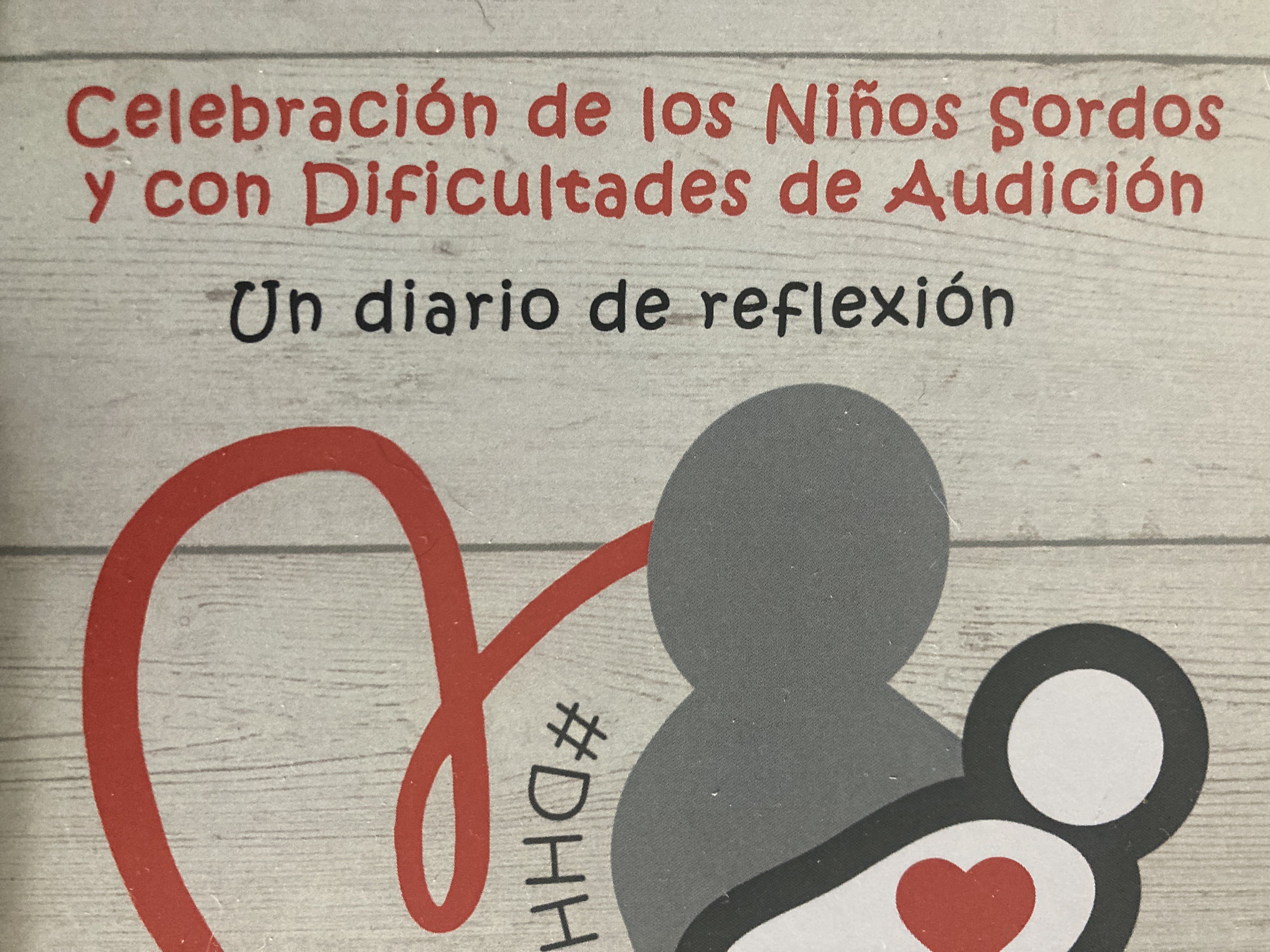Watch
Events
Articles
Market
More
I am going to make a bold statement: If you say one Bible translation is the only true translation, you're wrong. Let me show you why.
This picture, what does it say? If we translated it literally it says:
"Celebration of the boys deaf and with difficulties of hearing. A diary of reflection."
That second sentence is fine, but that first one isn't how we would normally word an English sentence. So, let's fix it:
"A celebration of deaf and hard of hearing children. A diary of reflection." While it doesn't look like much, there is quite a bit of change going on here.
First, we added the article "a" to celebration as we wouldn't just say "celebration" then what we are celebrating. I almost changed it to celebrating, but opted to try and keep things as similar as possible.
Then we removed the article "the" and moved boys to the end of the sentence, as well as changed boys to children. This book isn't just about boys and in Spanish the word for boys also is the word for children.
Then we removed "with" and changed "difficulties" to "hard", as "hard of hearing" is the more common terminology for hearing loss.
For just one sentence, in a modern day language, that is a lot to consider and change. Think about how much translators have to consider and change when it comes to an ancient language to covert it to modern day.
Let's look at Genesis 1:1.
Many Bibles say something along the lines of "In the Beginning, God created the Heavens and the Earth."
The Hebrew we have for that verse is: בּראשׁית בּרא אלהים את השּׁמים ואת הארץ
That is read from right to left. The first word is בּראשׁית, which actually is a word with a prefix on it. The prefix of ב is saying "in". The word ראשׁית comes from the root word רֹאשׁ which means "head", giving ראשׁית a meaning of "first" or "beginning".
So, if we were to just translate this first word literally, it would be: In Beginning. There is no article "the" there. Translators add that because English needs it.
Let's move down the line to the word את. This word is no where to be found in any of your Bibles (unless you get one that adds it back). Why? Because there is no word equivalent in English. It is a word that let's the reader know the object being spoken about. This first את is pointing to השּׁמים, "the heavens". The second את, which has a ו attached to it meaning "and", is pointing to הארץ, "the earth". We don't need this type of word in English, so it is left out.
Note, on both השּׁמים and הארץ they have a ה attached to the front. This means "the".
If we skip back to the word בּרא, this means create. At least, that is how we translate it. The issue with the word create is it is a term that can be applied to anyone. I created this post. However, בּרא, in creation use, is only ever done by God. God is the only one that creates. We don't have an exclusive word for God creating, so we have to use the word which anyone can do.
The word after בּרא is אלהים, which literally means gods. However, it is often used to refer to God. Kind of like the royal "we". Its a plural for a singular to show the importance of that singular.
So, a literal translation would be: In beginning created gods (untranslatable) the heaven and (untranslatable) the earth.
Oh yeah, I didn't point out that in Hebrew, the verb goes before the noun.
So, yeah, there are a lot of decisions that have to be made and changes to get from one language to another.
This doesn't even consider the fact that the Hebrew we are currently using for our Bibles is newer than other language translations we have. And some of those translations seem to be more accurate in areas.
All of this to say: there isn't a perfect English translation. Just because it is older, is more thought to thought, or more literal, or whatever, it still has flaws to it, because English is not Hebrew.




Rhy Bezuidenhout
Not even to speak about pronunciation. ? Trying to pronounce a language without any vowels makes it near impossible to get the full meaning and 100% accurate pronunciation.
LOST IN TRANSLATION has never been so clear to me. ?
Thanks for taking the time to do this brakedown. ?
Delete Comment
Are you sure that you want to delete this comment ?